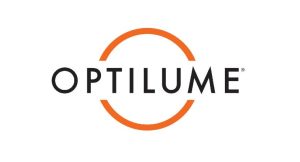In the 1990s, researchers explored the use of balloon dilation as a potential treatment for Benign Prostatic Hyperplasia (BPH). However, the technique proved ineffective in providing long-term benefits. Urotronic, a company that makes medical devices, has come up with a solution to this problem. They have combined the immediate relief of symptoms that balloon dilation provides with the localized delivery of paclitaxel, a well-known drug used in cardiovascular devices to keep blood vessels from narrowing after angioplasty or stenting.
The breakthrough innovation by Urotronic resulted in the development of Optilume, a revolutionary medical device designed to alleviate lower urinary tract symptoms associated with BPH while delivering paclitaxel directly to the affected area. Recently, Urotronic achieved a significant milestone as the FDA granted approval for the commercialization of Optilume following a successful clinical trial.
The clinical trial involved 148 patients and compared the effectiveness of Optilume to a sham treatment. The results were highly promising, with Optilume demonstrating substantial benefits over the control group throughout the 12-month study period.
One of the primary measures of success in BPH treatments is the International Prostate Symptom Score (IPSS), which evaluates lower urinary tract symptoms. The trial revealed that patients treated with Optilume experienced a remarkable reduction in IPSS, falling from an average of 23.4 at the beginning of the trial to 10.9 after 12 months. In contrast, the sham control arm only saw a 4.8-point decrease, highlighting the superiority of Optilume in providing symptomatic relief.
Another key metric, peak urinary flow rate (Qmax), also showed impressive results with Optilume. Qmax doubled from 8.9 mL per second at baseline to 19.0 mL per second after 12 months of treatment. Such an increase in Qmax represents a potential differentiator from other minimally invasive BPH therapies currently available on the market.
Steven Kaplan, a respected professor of urology at the Icahn School of Medicine at Mount Sinai, expressed his enthusiasm for Optilume, calling it the "next generation of minimally invasive technology" and commending its ability to establish a new drug-device category within BPH therapies.
Optilume joins the ranks of other minimally invasive treatment options for BPH, including UroLift and the Rezum System. Teleflex acquired UroLift for $725 million upfront, expanding its portfolio, while Boston Scientific obtained the Rezum System in a takeover worth $306 million upfront. Despite these notable contenders, Optilume stands out due to its unique combination of balloon dilation and localized drug delivery, which sets it apart as a promising alternative for patients suffering from BPH.
With its FDA approval, Optilume opens new possibilities for urologists and patients alike. As this cutting-edge technology becomes available, it holds the potential to revolutionize the treatment landscape for BPH, providing new hope for those seeking lasting relief from the debilitating symptoms of this condition. As it enters the market, Optilume may indeed change the course of BPH therapies and improve the quality of life for countless individuals affected by this common urological condition.























